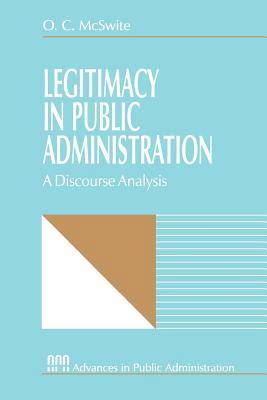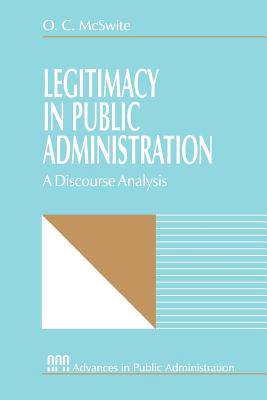
- Retrait gratuit dans votre magasin Club
- 7.000.000 titres dans notre catalogue
- Payer en toute sécurité
- Toujours un magasin près de chez vous
- Retrait gratuit dans votre magasin Club
- 7.000.0000 titres dans notre catalogue
- Payer en toute sécurité
- Toujours un magasin près de chez vous
160,45 €
+ 320 points
Format
Description
In this "postmodern, end-of-the-century" moment, the question of what role public administration can legitimately play in a democratic society has deepened and taken on increased urgency. At the same time the movement toward global marketization has gained enormous momentum, traditional prejudices and racial and ethnic violence have appeared with a renewed virulence, presenting unprecedented challenges to democratic governments. Legitimacy in Public Administration reveals how the issue of administrative legitimacy is directly implicated, indeed central, to this broader issue. It argues that legitimacy hinges at the generic level on the question of alterityùhow to regard and relate to "different others." This book reviews the history of the legitimacy issue in the literature of American public administration with the purpose of demonstrating that this discourse has been distorted by an underlying and undisclosed commitment to an elitist "Man of Reason" model of the public administratorÆs role. Current attempts to reformulate administration to meet the challenge of new conditions will fail, the author argues, because they have not escaped the grip of this implicit distortion. Legitimacy in Public Administration includes a challenging concluding chapter that uses insights from gender theory and demonstrates the connection between the legitimacy question and the critical problem of alterity. The author also offers a new way to fundamentally reframe the legitimacy question, so as not only to help the field of public administration resolve it, but to show how this resolution can create a new understanding of the problem of racial and ethnic prejudice.
Spécifications
Parties prenantes
- Auteur(s) :
- Editeur:
Contenu
- Nombre de pages :
- 320
- Langue:
- Anglais
- Collection :
- Tome:
- n° 4
Caractéristiques
- EAN:
- 9780761902744
- Date de parution :
- 01-07-97
- Format:
- Livre broché
- Format numérique:
- Trade paperback (VS)
- Dimensions :
- 153 mm x 229 mm
- Poids :
- 521 g

Les avis
Nous publions uniquement les avis qui respectent les conditions requises. Consultez nos conditions pour les avis.






